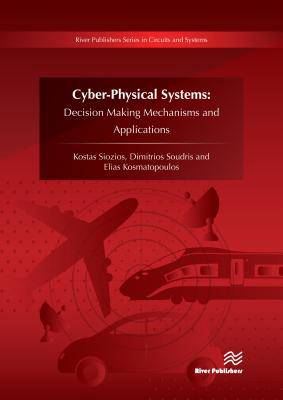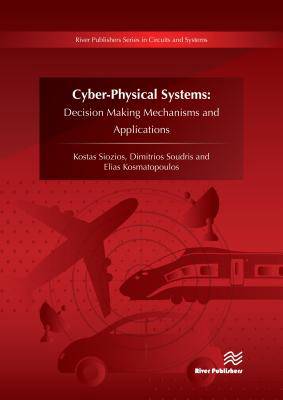
- Retrait gratuit dans votre magasin Club
- 7.000.000 titres dans notre catalogue
- Payer en toute sécurité
- Toujours un magasin près de chez vous
- Retrait gratuit dans votre magasin Club
- 7.000.0000 titres dans notre catalogue
- Payer en toute sécurité
- Toujours un magasin près de chez vous
Cyber-Physical Systems
Decision Making Mechanisms and Applications
Kostas Siozios, Dimitrios Soudris, Elias KosmatopoulosDescription
As systems continue to evolve they rely less on human decision-making and more on computational intelligence. This trend in conjunction with the available technologies for providing advanced sensing, measurement, process control, and communication lead towards the new field of the Cyber-Physical System (CPS). Cyber-Physical systems are expected to play a major role in the design and development of future engineering platforms with new capabilities that far exceed today's levels of autonomy, functionality and usability. Although these systems exhibit remarkable characteristics, their design and implementation is a challenging issue, as numerous (heterogeneous) components and services have to be appropriately modeled and simulated together. The problem of designing efficient CPS becomes far more challenging in case the target system has to meet also real-time constraints.
Cyber-Physical Systems: Decision Making Mechanisms and Applications describes essential theory, recent research and large-scale user cases that addresses urgent challenges in CPS architectures. In particular, it includes chapters on:
Decision making for large scale CPS
Modeling of CPS with emphasis at the control mechanisms
Hardware/software implementation of the control mechanisms
Fault-tolerant and reliability issues for the control mechanisms
Cyber-Physical user-cases that incorporate challenging decision making
Spécifications
Parties prenantes
- Auteur(s) :
- Editeur:
Contenu
- Nombre de pages :
- 290
- Langue:
- Anglais
- Collection :
Caractéristiques
- EAN:
- 9788793609099
- Date de parution :
- 09-11-17
- Format:
- Livre relié
- Format numérique:
- Genaaid
- Dimensions :
- 156 mm x 234 mm
- Poids :
- 585 g

Les avis
Nous publions uniquement les avis qui respectent les conditions requises. Consultez nos conditions pour les avis.






